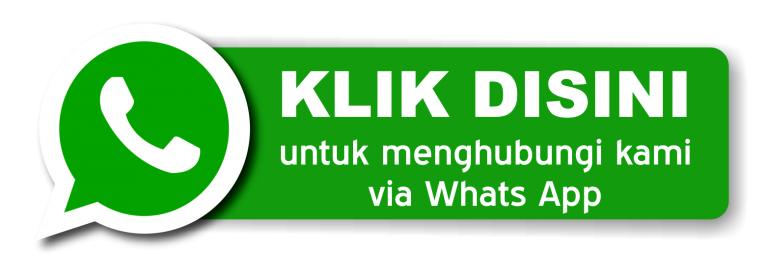ANALISIS DAMPAK PENGGUNAAN CHATGPT TERHADAP KEBIASAAN BELAJAR MAHASISWA
DOI:
https://doi.org/10.61722/jipm.v3i4.1071Keywords:
ChatGPT, Students, and Artificial IntelligenceAbstract
. The development of Artificial Intelligence (AI) technology has brought significant changes to higher education, particularly through the emergence of ChatGPT, which is widely utilized by students in their learning processes. While it offers convenience in accessing information and completing academic tasks, the use of ChatGPT also raises concerns about changes in students' learning habits, such as a decline in critical thinking skills and learning independence. This study aims to analyze the impact of ChatGPT usage on students' learning habits using a literature review method. Data were collected from various accredited and relevant scientific journals and then analyzed qualitatively to identify patterns of impact, both positive and negative, on student learning behavior. The findings indicate that ChatGPT can be an effective learning tool; however, its use should be accompanied by strengthened digital literacy and academic supervision to ensure it does not diminish the quality of education.
References
Al-Zoube, M. (2009). E-learning on the cloud. International Arab Journal of e-Technology, 1(2), 58–64.
Aljanabi, A. (2023). Understanding students’ perception of ChatGPT as a learning assistant: A preliminary study. International Journal of Emerging Technologies in Learning, 18(2), 120–135.
Ausubel, D. P. (1968). Educational Psychology: A Cognitive View. New York: Holt, Rinehart and Winston.
Dwiyanti, S., & Maulidya, I. N. (2023). Analisis Etika Penggunaan ChatGPT dalam Dunia Akademik. Jurnal Teknologi dan Pendidikan, 11(1), 25–33.
Gagné, R. M. (1985). The Conditions of Learning and Theory of Instruction (4th ed.). New York: Holt, Rinehart and Winston.
Harsya, D. R., Nugroho, F., & Pramudito, A. D. (2024). Dampak Penggunaan ChatGPT terhadap Gaya Belajar Mahasiswa. Jurnal Pendidikan dan Teknologi, 7(1), 45–55.
Holmes, W., Bialik, M., & Fadel, C. (2019). Artificial Intelligence in Education: Promises and Implications for Teaching and Learning. Boston: Center for Curriculum Redesign.
Joenaidy, D. (2019). Revolusi Industri 4.0 dan Tantangan Pendidikan Tinggi. Jurnal Ilmu Sosial dan Humaniora, 8(1), 12–20.
Kaplan, A., & Haenlein, M. (2019). Siri, Siri, in my hand: Who’s the fairest in the land? On the interpretations, illustrations, and implications of artificial intelligence. Business Horizons, 62(1), 15–25.
Krippendorff, K. (2018). Content Analysis: An Introduction to Its Methodology (4th ed.). Thousand Oaks, CA: Sage.
Lian, B., & Amiruddin, M. (2021). Revolusi Industri 4.0 dalam Perspektif Pendidikan Islam. Jurnal Pendidikan Islam, 10(2), 231–242.
Listiana, D., Cahyani, E., & Wahyudi, S. (2025). Pemanfaatan ChatGPT dalam Meningkatkan Kemandirian Belajar Mahasiswa. Prosiding Seminar Nasional ADPI, 3(1), 123–130.
Lu, O. H. T., Huang, A. Y. Q., Huang, J. C. H., & Yang, S. J. H. (2021). Applying learning analytics for the early prediction of students’ academic performance in blended learning. Educational Technology & Society, 24(1), 97–109.
Luckin, R., Holmes, W., Griffiths, M., & Forcier, L. B. (2016). Intelligence Unleashed: An Argument for AI in Education. Pearson Education.
Nugraheni, R., & Setiawan, R. (2023). Dampak Teknologi AI terhadap Pola Belajar Mahasiswa di Era Digital. Jurnal Pendidikan dan Inovasi Teknologi, 6(2), 89–101.
Prensky, M. (2010). Teaching Digital Natives: Partnering for Real Learning. Thousand Oaks, CA: Corwin.
Puspaningrum, E. R., Ramadhani, R., & Sari, R. (2024). Ketergantungan Mahasiswa terhadap ChatGPT: Studi Kasus di Universitas Muhammadiyah Ponorogo. Jurnal Riset Pendidikan Teknologi, 5(1), 88–96.
Putri, R. A., & Wicaksono, A. (2023). Transformasi Belajar Mahasiswa dengan Bantuan ChatGPT. Jurnal Pendidikan dan Teknologi Informasi, 8(1), 55–66.
Rachman, M. A., Widodo, H., & Astuti, R. (2024). ChatGPT dalam Meningkatkan Produktivitas Akademik Mahasiswa. Jurnal Inovasi Pendidikan Tinggi, 9(2), 101–112.
Rahayu, A. T., & Subekti, M. A. (2022). Efektivitas Penggunaan Teknologi dalam Proses Belajar Mahasiswa. Jurnal Pendidikan Modern, 4(1), 40–49.
Rizaldi, A., Kurniawan, Y., & Fadhilah, N. (2024). Pengaruh Penggunaan ChatGPT terhadap Kemampuan Berpikir Kritis Mahasiswa. Jurnal Penelitian Pendidikan Matematika, 13(1), 27–36.
Rohim, M., & Azkia, R. (2023). Potensi Plagiarisme dalam Penggunaan ChatGPT di Kalangan Mahasiswa. Jurnal Etika dan Teknologi Pendidikan, 5(2), 66–74.
Rowley, J., & Slack, F. (2004). Conducting a Literature Review. Management Research News, 27(6), 31–39.
Slameto. (2010). Belajar dan Faktor-Faktor yang Mempengaruhinya. Jakarta: Rineka Cipta.
Snyder, H. (2019). Literature review as a research methodology: An overview and guidelines. Journal of Business Research, 104, 333–339.
Susilo, A. (2023). Tantangan Berpikir Kritis dalam Era Digitalisasi Pembelajaran. Jurnal Teknologi dan Pendidikan Islam, 6(1), 23–30.
Widjaya, T., Sugianto, H., & Nabila, R. (2024). Persepsi Mahasiswa terhadap ChatGPT dalam Pembelajaran. Jurnal Teknologi Pendidikan, 11(1), 70–80.
Yuliana, R. (2023). Perubahan Kebiasaan Belajar Mahasiswa di Era Teknologi. Jurnal Pendidikan Digital, 7(1), 15–24.
Downloads
Published
How to Cite
Issue
Section
License
Copyright (c) 2025 JURNAL ILMIAH PENELITIAN MAHASISWA

This work is licensed under a Creative Commons Attribution-ShareAlike 4.0 International License.












